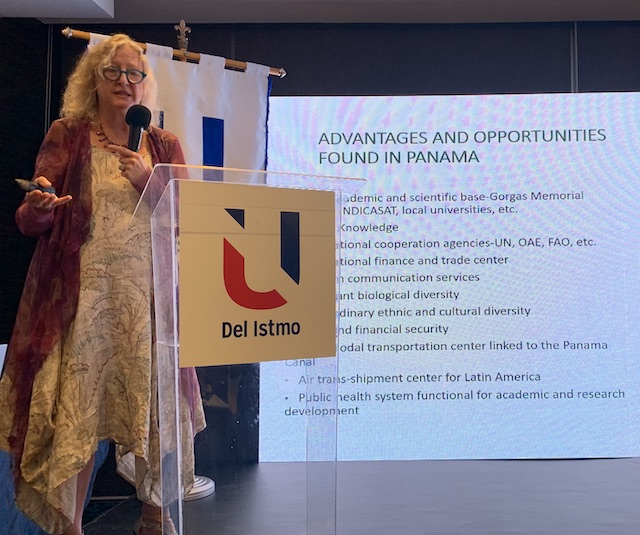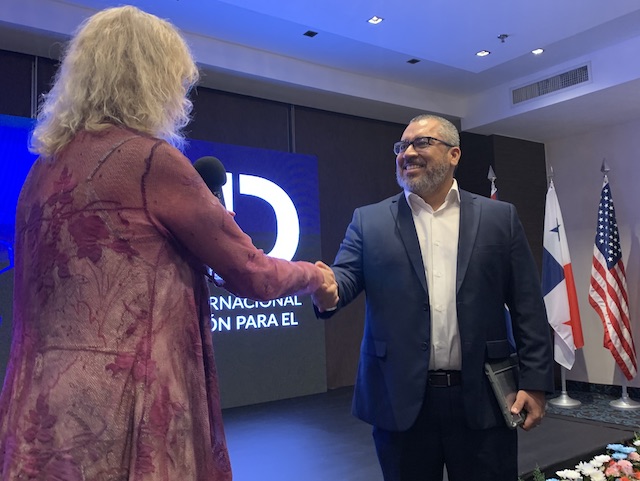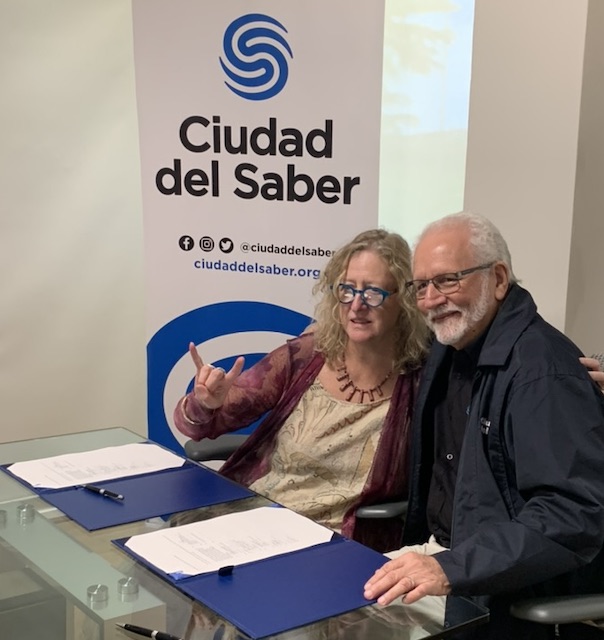Renewing, reinforcing and reimagining COPH partnerships in Panama
In October, USF College of Public Health (COPH) Dean Donna Petersen traveled to Panama, meeting with Panamanian public health professionals, COPH alumni and health ministry officials.
The trip’s aim was to renew existing partnerships and forge new ones ahead of the 20-year anniversary of the Panama Program, housed within Panama’s City of Knowledge. The anniversary will be recognized next year.

The college’s Panama Program, led by Associate Professor and COPH alum Dr. Arlene Calvo, provides the COPH with study abroad programs, international field experiences and internships, service learning, faculty and student exchange and multiple types of research activities. The City of Knowledge is a non-profit community of academic institutions, technology companies and nongovernmental organizations.
The COPH has multiple partners within Panama, and it is in the process of developing and renewing 11 agreements of collaboration with agencies such as the Universidad de Panama, APLAFA-Panamanian Family Planning Society, the Gorgas Memorial Institute for Health Studies, the Ministry of Science and Technology and the Institute for Scientific Research and Technology Services (SENACYT).
The college also recently partnered with the Universidad del Istmo, where COPH alum Dr. Arturo Rebollon is the dean of health sciences and where Petersen addressed attendees of a scientific symposium held during her visit. Other alumni of the Panama Program were also in attendance. “They are all doing incredibly well in their positions as leaders in the Panamanian health system,” Petersen said. “I cannot express how gratifying this is—to know that through these efforts, we are truly making the world a better place for public health.”

Petersen noted that having these partnerships has afforded the college a plethora of opportunities—from hosting study abroad courses, student interns, student and faculty researchers and international conferences in the country to creating professional development programs and recruiting emerging leaders to study public health in Tampa.

The COPH has also taken a supportive role in the establishment of a simulation center in Panama, modeled on USF Health’s Center for Advanced Medical Learning and Simulation (CAMLS), as well as a new vaccine research/production center, currently being built.
Next up, said Petersen, will be an international academic conference on migration and human health in Latin America, to coincide with the Panama Program’s 20th anniversary.
“In the U.S., we are acutely aware of our migration issues, but we sometimes forget that migration includes many people traveling many miles through fragile ecosystems and small communities, presenting threats to security, health and the environment while also presenting opportunities for those with ill intent to capitalize on the vulnerabilities these populations present,” Petersen said. “We look forward to a rich discussion, which will undoubtedly lead to other ideas that we will nourish, together. We will continue to engage as true partners with Panama, optimizing what each of us brings to the relationship.”
Story by Donna Campisano, USF College of Public Health
